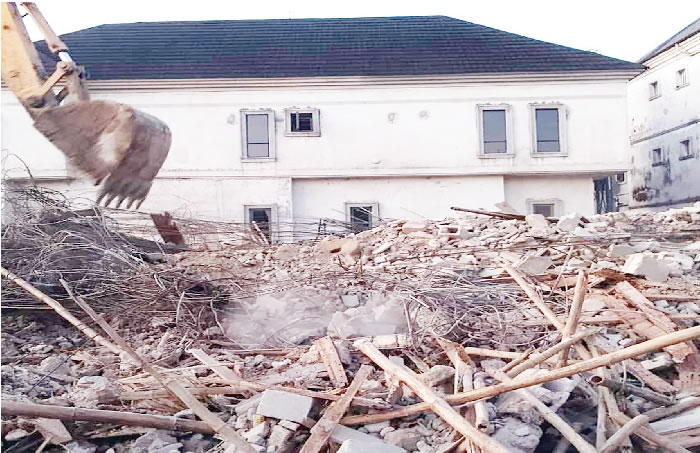Amid growing concern over recurring incidents of structural failure across Nigeria, the Nigerian Institute of Architects (NIA) has issued a strong warning about the dangers posed by unqualified individuals operating within the construction industry.
The warning came during the NIA’s 65th anniversary celebration held recently, where senior professionals and industry leaders gathered to reflect on the challenges facing the architectural field.
NIA President, Mobolaji Adeniyi, in her keynote address, criticized the continued engagement of non-professionals for architectural design and site supervision, attributing many building collapses to this disturbing trend.
According to her, “The architect is supposed to coordinate the entire construction team structural engineers, mechanical and electrical specialists, quantity surveyors, and certified builders. But when developers skip this process and rely on unlicensed individuals to cut costs, the results are often tragic.”
She further explained that architects are integral to all phases of construction, from initial design through to final delivery, ensuring compliance with technical and safety standards. However, in many cases, developers exclude architects from the supervision phase, resulting in substandard execution.

“Some clients collect a design from an architect and proceed with construction without further engagement. No one monitors if the structural plans are being followed or if the right materials are used. That’s where things start to go wrong,” Adeniyi stated.
She advocated for stricter enforcement of laws governing architectural practice and greater public awareness of the risks associated with employing unlicensed personnel.
Also addressing attendees, Peter Dateme, Chair of Practice at the NIA, emphasized the legal and practical implications of using unregistered individuals for architectural work.
“Many of the failed structures we’ve seen were overseen by people who lacked the proper credentials. Being a graduate of architecture doesn’t automatically confer a license to practice,” he noted. “It is both legal and appropriate to ask to see an architect’s license before awarding them a project.”
Both speakers agreed that effective regulation, combined with public education, is essential to curbing the proliferation of quackery and restoring confidence in Nigeria’s built environment.




